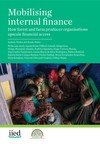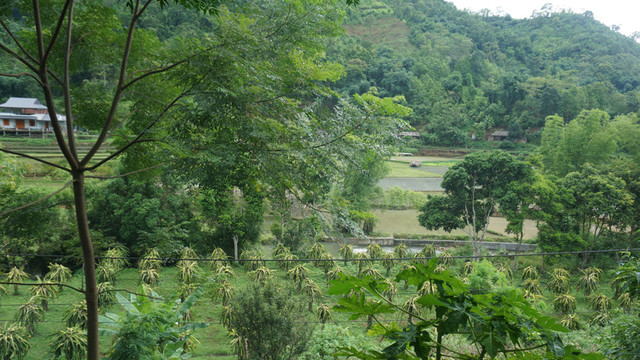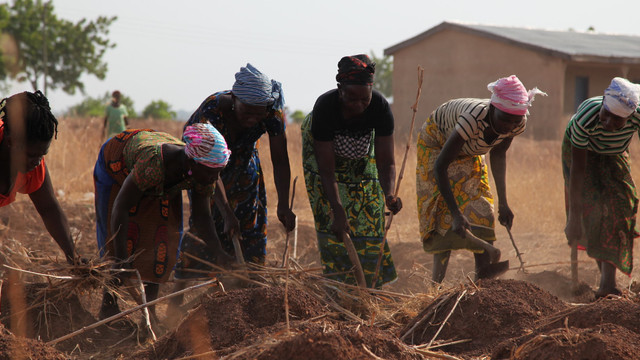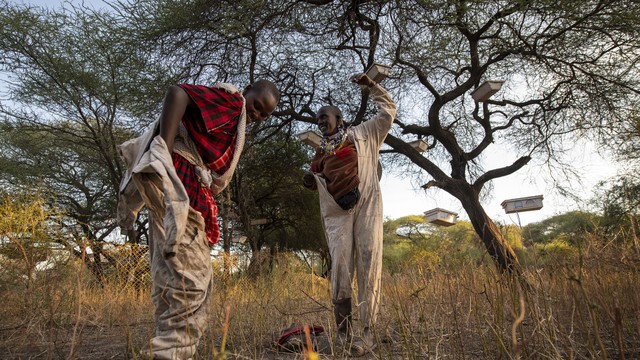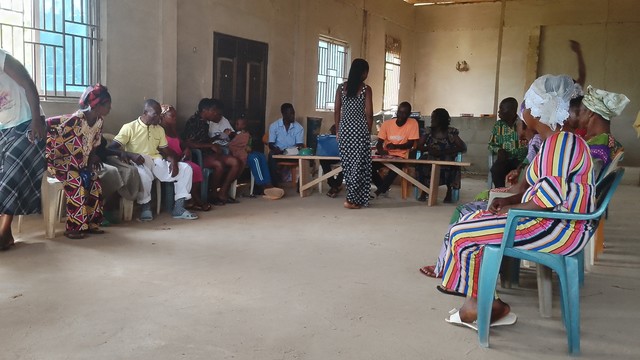Producer organisations offer huge potential for delivering nature and climate finance
Forest and farm producer organisations offer immense potential for channelling vital climate and nature finance to rural communities, and funders and governments should do more to support them, according to new IIED research.

A farmer in Colombia carries a bag of cocoa pods (Photo: USAID, via Flickr, CC BY-NC 2.0)
IIED has published new research highlighting the potential for forest and farm producer organisations (FFPOs) to generate crucial investment finance for their members and deliver climate and nature funding to rural communities.
Small-scale and family farmers and Indigenous Peoples are central to the sustainable management of forests and agriculture. They own or manage almost half of forests and farmlands worldwide and play an important role in protecting landscapes, supporting biodiversity and promoting food security.
However, these rural communities have little access to external finance, limiting their ability to invest for the future.
How FFPOs can bridge the funding gap
IIED's research suggests that producer organisations can fill this funding gap by mobilising internally generated finance to provide financial services to their members.
Forest and farm producers often form FFPOs to collaborate to reduce costs, share knowledge, increase the scale of production and advocate for supportive government policy. FFPOs range from small sector-based cooperatives to large national organisations that link many small local networks.
Many producer organisations promote savings groups and manage financial cooperatives to offer financial services to their members. FFPOs are usually collectively owned and democratically managed by their members. Their deep understanding of their membership ensures that they can set up accessible and trust-based financial mechanisms tailored to their members’ needs, which strengthens smallholder livelihoods.
Crucially, FFPO financial mechanisms also develop solid financial track records, reducing external funders' perceptions of risk and increasing producers' access to external finance.
Unlocking the full potential of FFPOs goes beyond providing financial access to smallholders: it extends to their significant capacity to channel climate and nature finance directly to the local level.
Researchers say this potential has not yet received sufficient attention and investment.
Growing money from within
IIED’s new report, 'Mobilising internal finance: how forest and farm producer organisations upscale financial access', features six case studies of FFPOs that have successfully mobilised finance for their members. The case studies look at how FFPOs in Zambia, Ghana, Bolivia, Ecuador, India and Brazil have set up financial services for their members. The capital managed by these FFPOs ranges from US$840 to $4.7 billion.
The research maps three stages and 11 steps that producer organisations and their partners should consider when mobilising internal finance, and offers practical insights and recommendations for policymakers.
The related policy briefing says development donors and practitioners should work with FFPOs to establish and strengthen their finance mechanisms by providing enabling investment, blended finance and capacity building.
Governments should create a regulatory environment that supports FFPOs in establishing financing mechanisms such as savings and credit cooperatives and credit unions.
The research is accompanied by a video in English and Spanish, which features the general manager of the Bolivian agricultural co-operative El Ceibo discussing how his organisation provides finance for cocoa producers.
Smallholder and family farmers are already delivering significant climate change adaptation. Recent IIED research suggested that smallholder forest and farm producers are investing, on average, 20-40% of their annual income in measures to adapt to climate change, including conserving or restoring biodiversity. FFPOs’ financial mechanisms offer great potential to channel more funds to support these efforts.
The research into FFPO finance is part of IIED’s ongoing work with the Forest and Farm Facility (FFF) to strengthen the organisations of forest and farm producers across the globe.
Contact
For more information on this work, contact Isabela Núñez del Prado Nieto (isabela.nunezdelpradonieto@iied.org), a forest finance researcher in IIED’s Natural Resources research group
